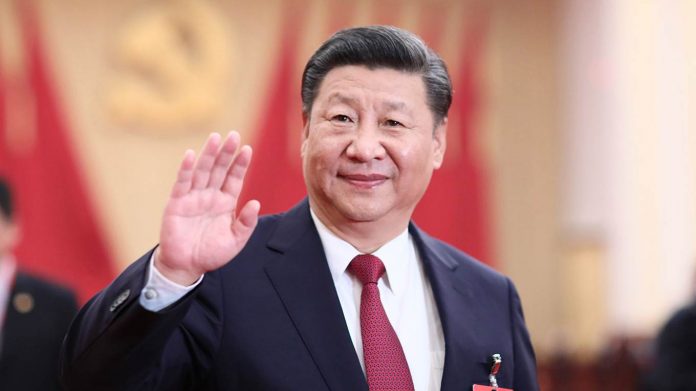In recent years, China has been moving to reshape the new world order to become what is described as “an illiberal state seeking leadership in a liberal world order” (by Elizabeth Economy in her essay published on Foreign Affairs), by reportedly boosting militarization in South China Sea, intensifying propaganda of China’s political discourse through Confucius Institutes, stepping up “money influence” in Australian political landscape and threatening academic freedom in American universities through Chinese overseas students, enabling technological and commercial espionage, imposing its political correctness on foreign business through coercive means. Now the western countries are on high alert and reconsidering their decades old approach of economic and political engagement with China.
A slew of news stories, scholarly works, and research papers from think-tanks and government organs are warning about the alarming trend of all-around China influence and infiltration in western societies on cultural, economic, political, even academic and ideological fronts, urging their governments to take actions to defend national security, including but not limited to restriction of acquisition or business activity by Chinese companies, shutdown of Confucius Institutes operating in the host countries, stricter examination of political donations from Chinese persons or entities, and limiting visas to potential Chinese international students in high-tech majors.
The Chinese media (English-language China Daily and Global Times) quickly play the innocence card by drawing a parallel between the ongoing China scare across the western countries and “McCarthyism” in 1950s, the anti-communist witch hunt and nationwide purge in the US targeting against communist infiltration by former Soviet Union and newly-founded China in American society. During the period, anyone expressing sympathy with communism, showing any deviation from or challenging “McCarthyism” or urging for rationality against mindset was labelled as latent communist posing potential threat to democratic institutions in the US and investigated for disloyalty, espionage, treason and subversion of American government.
Is the current wariness over China influence comparable to ideological hysteria in the 1950s? The history usually repeats itself, but in different patterns, such as Islamophobia after 9/11 attack and continuing “Russia investigation”. Compare the current China scare and the “red scare” in the 1950s, there are similarities in the background. Both episodes are unfolding amid the vicissitude of social conditions and international order, including America’s profound worries over the rise of a new superpower, the challenge to the democratic institution, the widening division in American people, etc. But there are some critical differences in some ways, which indicates such analogy is seriously flawed and the current episode is far from the equivalent of new McCarthyism.
First, the “red scare” in the 1950s differs from the ongoing China scare regarding the targets of the political movement. During earlier 1950s, a large number of American citizens, mostly employees in government, entertainment sector, and citizens associating with leftist movements, were targeted, investigated and accused of being communists or sympathizing with communism, while during the current maneuver against China influence, only Chinese entities are subjected to investigation, sanctions and proposed scrutiny. Chinese state-owned companies considered being backed and directed by Chinese government are sanctioned; acquisitions launched by Chinese companies are subjected to more stringent scrutiny or blocked; Chinese government-backed Confucius Institutes in the US would be asked to register under Foreign Agents Registration Act, a Nazi-era legislation introduced in 1938 to curb propaganda directed by foreign powers according to proposed Foreign Influence Transparency Act to the US Congress.
Second, both episodes are totally different in nature. Whereas the fear of subversion bred McCarthyism in 1950s amid the fierce competition between the US and former Soviet Union in ideological battleground where each one claimed the superiority of its own political institution, the ongoing wariness of China is rooted in the sense of economic insecurity, especially when China has been racing to catch up the US in economy and technology. Compared with negligible US-USSR trade volume in earlier Cold War era, in spite of continuing trade war between the US and China, their relation is solidly based on principle of “pragmatism over idealism” and they are closely interconnected to and interdependent on each other in economic ties where each party has huge interest in economic prosperity of the other.
The Chinese state media are portraying China as the target of irrational US politics and scapegoat of its own domestic social malaise, but they are fundamentally wrong in their misjudgment of the current situation and misinterpretation of the nature of McCarthyism in the 1950s. Will the current political atmosphere develop into a breeding ground for another hysteria? The answer depends on, firstly, whether the current fear over China influence is well-substantiated or out of nothing, and, secondly, whether China will continue its pivot to assertiveness.
On the first question, the worries of Americans are well-based on, at least, China’s increasingly assertive and reckless official rhetoric and moves since Xi Jinping took power in China, in events like island disputes with Japan in East China Sea, territorial disputes with a number of southeastern countries like Vietnam and the Philippines in South China Sea, economic sanction on South Korea for deployment of THAAD after nuclear test by North Korea, threatened punitive actions against international airlines for refusing to abide by China’s regulation on describing Taiwan as a part of China on its websites,etc. Besides, under Xi, China has committed to expanding its influence to an extent that rivals the western values. On the economic front, it rolled out “Belt and Road” initiative, a large loan-based investment spree in infrastructure projects that links not only developing countries but also developed countries. On ideological front, it committed to promoting “China model”, a hybrid political institution combining state-led capitalism with authoritarianism, as an alternative to liberal democracy, sharply contrast its high-efficiency with inefficient and ill-functioning democratic institution in western countries at a time when those countries are facing the challenges of profound social and political division, hobbling economic growth, widening inequality and increasing distrust of democracy.
On the second question, it is observed that China is well on track to seeking leadership in what’s described as the new international order by voluntarily assuming the role as “champion of globalization” based on Xi’s rhetoric in Davos in 2017, after it believes that the US is abdicating its leadership of the post-war world order and retreating into “America First” isolationism. However, what’s noticeable is that China is taking a different approach that runs counter to or even is clashing with the values of liberal democracy. In past decades since 1978, China has been vigorously engaged with the West and integrated into the global capitalism to gain economic benefits and technologies, but it has time and time again defied the expectation of the West and what’s predicted based on “modernization theory” that it would become more open and democratic with a swelling wealthy and well-educated middle-class longing for a much fairer and more inclusive society and a more democratic political system. Now, China believes that it is well-positioned to reshape the world order at its discretion with a fully-fledged economic power, a huge market irresistible for foreign companies, a burgeoning middle class highly-dependent on the political elites to maintain the status quo and fearful for any unexpected unrest ushered in by any radical social and political changes, and a large number of nationalistic zealots proud of what China has achieved in the past decades with the hope that a rising China will edge its way into the world leadership regardless of the views of the “declining West” and even make a forceful response to the “western bully”.
For China, the trend is already alarming. Compared with the episode in the 1950s, there is another difference, also the most important, in the ongoing episode. Geographically, while the scare of the former Soviet Union in the 1950s was endemic in the US, the current China scare is more pandemic across western countries and even developing countries. Other western democracies like Australia and the European Union are also vigilant of potential China influence under the cover of economic ties and investment drives. By introducing new national security law in reaction to what Australian prime minister called “disturbing reports of China influence”, Australia stepped up vigilance against what Professor Clive Hamilton claimed as China’s “silent invasion” imposing its political values and agenda on Australian politics through political donations and Chinese overseas students. In Europe, politicians are cautious against dealing with investment and business deals by Chinese state-owned and private companies whereas scholars are warning of China’s state-backed efforts to expand political influence on European values through investment in infrastructure in central, eastern and southern Europe. Meanwhile, developing countries like Malaysia, Sri Lanka, Pakistan, etc., most of which have close ties with China are worrying about the buildup of debt caused by China’s lending-based infrastructure investment spree and fearful of compromising their sovereignty in case of default or insolvency.
Therefore, a pervasive China fear will be unavoidable as China is continuing to struggle for its deserved “recognition” (stated by Francis Fukuyama in The End of History and the Last Man) of its authoritarian values and as a world power and to strive for unsatisfied quest for reshaping the world order through expansion of all-around influence around the globe in terms of “money influence”, “cultural propaganda”, “military buildup”, etc. The history is sounding an alarm for China. Before the first world war, the emerging power, German Empire under Emperor Wilhelm II, was striving for recognition as a world power with a strong quest for a superpower status and world domination, which led to heightened vigilance among other world powers and eventually its defeat in the brutal World War I.
Image credit: Wikimedia Commons

Keyu Chen served as financial translator for Goldman Sachs, J.P. Morgan and Deutsche Bank. He holds M.A. in international journalism and communication from Beijing Foreign Studies University. He’s interested in political communication, comparative politics and international relations.


